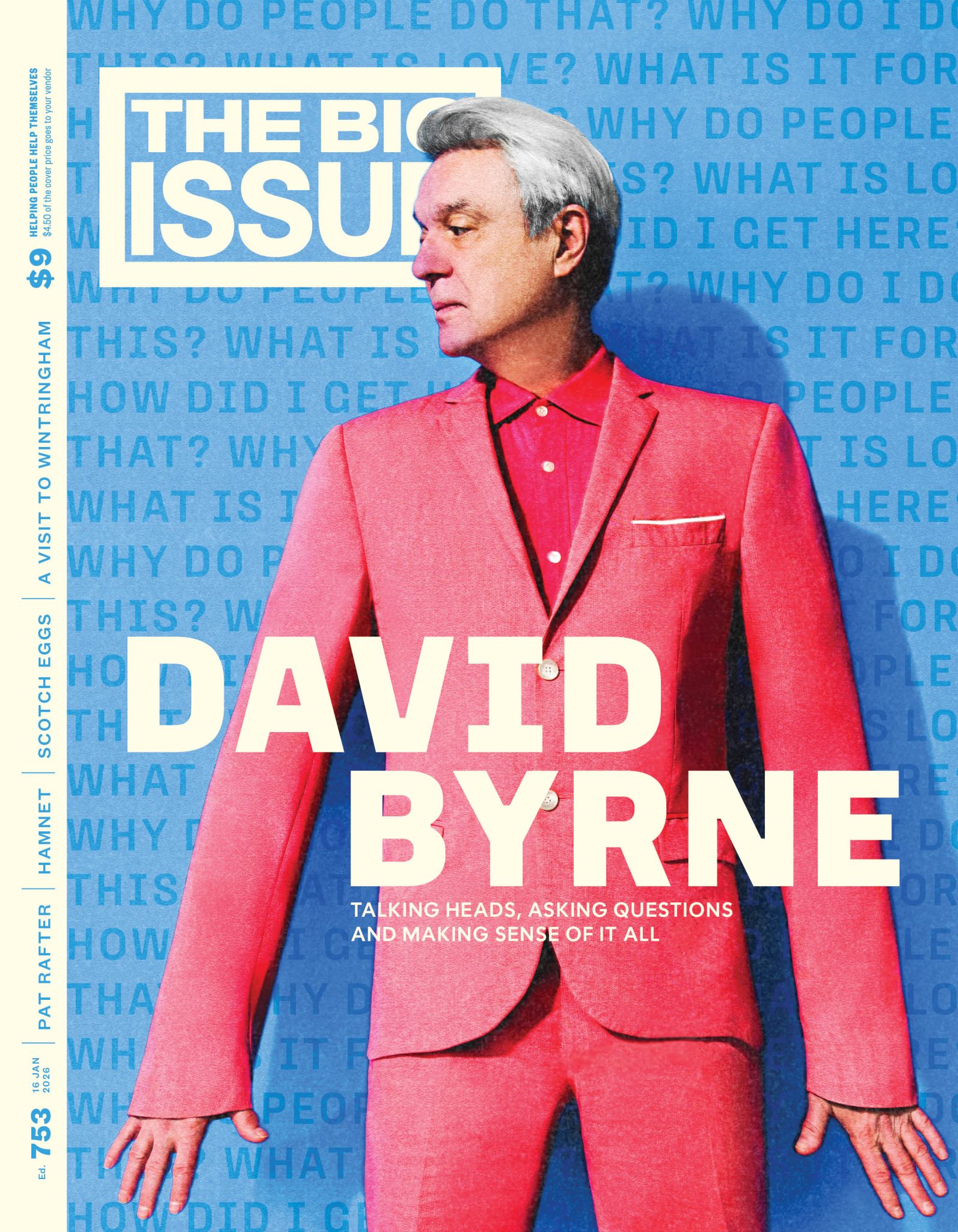Clementine Ford finds that there are many ways to be in love, to be known and understood.
When deprived of our usual avenues for love and connection, humanity finds other ways of experiencing joy. So it was with the pandemic. Some of us formed communities in online spaces. Others took up skills and hobbies they hadn’t previously considered. Me, I began taking weekly walks with my friend Alice, meeting in the park or along the river on our child-free nights. I’d like to say we held highbrow discussions on these moonlit strolls, but mostly we got a bit stoned and talked about boys.
Alice and I had met a year or so earlier, in a parenting group we’re both in on Facebook. I was wary of her at first. Before we’d properly even spoken with each other, she’d invited my son and me to join her on the annual camping trip she takes with other friends and their children. Who is this weird woman? I thought to myself, bristling against the anxiety of spending time in the company of strangers. But I didn’t want to be rude, and so drove to the campsite one day, stood around awkwardly for a few hours, and then begged leave for personal reasons.
Later, I would learn that this was the kind of thing Alice does. Makes friends, I mean. And not just casually. Alice makes friends of people, pursuing them with the same gentle charm we hope to bring to those we intend to make our lovers.
I fell in love with Alice after she invited me to help launch her second novel, a dystopian fiction set in a ruined future Melbourne wracked by climate change and floods. I agreed reluctantly, still fearing it was an elaborate set-up to force me to be friends with a person I would never normally seek out – the kind of person who goes camping. When The Glad Shout appeared in my mailbox the following week, I left it for a day or two before picking it up to skim read the first few pages. I didn’t put it down again until hours later, when the light had moved across the sky and the cicadas were beginning to sing outside. I felt myself changed in some way, gripped by the depths of this woman’s talent – her incredible fucking talent – and the ways she had so expertly managed to capture something innate about the tedium of women’s domestic lives without the writing becoming tedious itself.
There are many ways to fall in love, and it just so happens that I fell in love with Alice in almost all of them. We have had (thankfully, only a few) bitter fights on street corners, in parks and in living rooms, both of us expressing some interior rage or frustration that was less about each other than about life itself. More commonly, we have been each other’s sounding boards and champions. Ours is tactile friendship, although to be honest it feels simplistic to call it a friendship at all. It is more appropriate to think of Alice as my anamchara, a Celtic word I’ve learned recently that means “soul friend”. Your anamchara is a person with whom you can share your innermost self without fear of judgement or hostility. They are, to borrow a more modern literary reference, your person.
I feel blessed in this life to have a handful of soul‑friends, each of whom I can be fully, completely myself in front of. But if we are to allow ourselves the fancy of imagining reincarnation as an act of souls meeting repeatedly throughout eternity, Alice is the one I’ve met many times over, and we will continue to meet until the sun burns out and all of existence as we understand it ceases to be.
We often make the mistake of seeing friendship as secondary to romantic love, particularly where women are concerned. No matter who we’re attracted to, women are culturally instructed to aspire to domestic partnership of some kind. We are born, we come into maturity, and we find someone whose mere presence is supposed to water us for the rest of our days.
But for so many of us, our true experience of love – of being known and understood – comes not from those who may lie next to us at night, but from the anamchara who become our people.
I imagine myself sometimes, old and grizzled and grey. It isn’t a generic lover I see next to me, rocking on the proverbial porch. It’s Alice. Alice with her long, dark hair (which will by then be silver) and her brown eyes (which I have always mistaken for being ice blue). Alice with her thoughtful gaze and unexpectedly lewd vocabulary. Alice in repose, considering the world and all that it has offered us. Alice, who made of me a friend and gave to me a life. I love her, and it’s as simple as that.
Clementine Ford is a writer living on Wurundjeri land in Naarm/Melbourne. Her latest book How We Love: Notes on a Life is out now.
This article first appeared in The Big Issue Ed#649.
